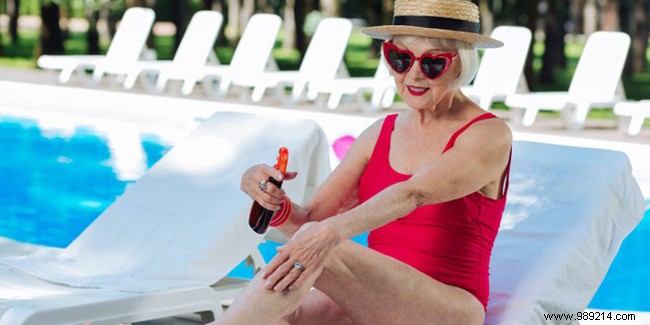
Enjoying the sun's gentle warmth and its vitamin D benefits is a pleasure at any age. However, prolonged exposure poses significant risks to the skin and eyes, especially as we age and these areas become more vulnerable. For seniors, rigorous sun protection is non-negotiable. High-quality sunscreen serves as a vital defense against UV damage, while self-tanners offer a safe alternative for a sun-kissed glow without the rays.
Protecting the skin from UV rays is crucial at every life stage. UV indices measure radiation intensity: 7-8 indicates strong exposure, and 9+ signals extreme levels, demanding robust protection.
Seniors' skin thins and weakens with age, heightening risks like premature aging (wrinkles, loss of elasticity, age spots) and skin cancer, including melanoma.
The sun also threatens the eyes, compounding issues like age-related macular degeneration (AMD), cataracts, and dry eye syndrome. Always opt for sunglasses with full UV protection during sun exposure.
Certain medications common among seniors—such as anti-inflammatories, antibiotics, antihistamines, diuretics, and treatments for cardiology, oncology, neuropsychiatry, or dermatology—can trigger phototoxic reactions. These include severe sunburns, rashes, or irritations when combined with UV rays.
Thus, seniors should minimize direct sun exposure, avoid severe burns, and prioritize hydration to protect fragile skin and eyes.
Beyond seeking shade, wearing hats, and limiting exposure time, sunscreen creates a critical barrier against UVA and UVB rays—essential for seniors with sensitive skin.
Skin sensitivity varies, so identify your phototype (sun risk level) based on skin, hair, and eye color, as outlined by health authorities:
Match your sunscreen to your phototype for tailored protection. Look for SPF (Sun Protection Factor) ratings: 50+ (very high), 30-50 (high), 15-25 (medium), 6-10 (low). Experts recommend broad-spectrum UVA/UVB sunscreens with at least SPF 25 for seniors, ideally higher based on UV conditions.
Apply generously 30 minutes before exposure, reapplying every two hours or after swimming—even with water-resistant formulas.
Note: "Total screen" labeling is banned in France, as no product blocks 100% of UV rays.